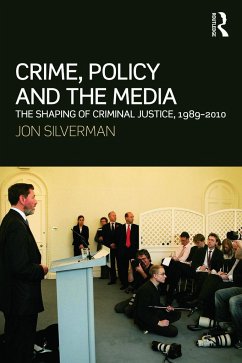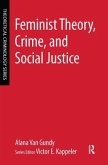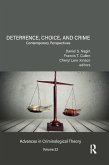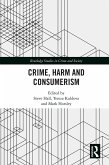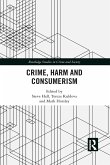Media clamour on issues relating to crime, justice and civil liberties has never been more insistent. Whether it is the murder of James Bulger or detaining terrorist suspects for long periods without trial, mediated comment has grown immeasurably over the last twenty years. So, how does it interact with and shape policy in these fields? How do the politicians both respond to and try to manipulate the media which permeates our society and culture? Crime, Policy and the Media is the first academic text to map the relationship between a rapidly changing media and policymaking in criminal justice. Spanning the period, 1989-2010, it examines a number of case studies - terrorism, drugs, sentencing, policing and public protection, amongst others - and interrogates key policy-makers (including six former Home Secretaries, a former Lord Chief Justice, Attorney-General, senior police officers, government advisers and leading commentators) about the impact of the media on their thinking and practice. Bolstered by content and framing analysis, it argues that, especially, in the last decade, fear of media criticism and the Daily Mail effect has restricted the policymaking agenda in crime and justice, concluding that the expanding influence of the Internet and Web 2.0 has begun to undermine some of the ways in which agencies such as the police have gained and held a presentational advantage. Written by a former BBC Home Affairs Correspondent, with unrivalled access to the highest reaches of policy-making, it is both academically rigorous and accessible and will be of interest to both scholars and practitioners in media and criminal justice.
Hinweis: Dieser Artikel kann nur an eine deutsche Lieferadresse ausgeliefert werden.
Hinweis: Dieser Artikel kann nur an eine deutsche Lieferadresse ausgeliefert werden.

